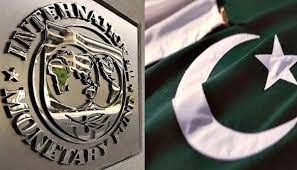After getting the cold shoulder from the International Monetary Fund (IMF) regarding the provision of relief to the public in the context of back-breaking electricity bills, the caretaker government has recently announced a massive crackdown to stop electricity theft and against the low recovery to improve the energy sector and address the grievances of the affected consumers across the country.
The interim rulers have conceived the idea of introducing a new electricity theft control act, aiming to establish enforcement of the new law by creating special courts for handling complaints and penalties.
Pakistan’s system for electricity generation, circulation and distribution has inherited technical flaws, administrative loopholes and serious management problems from top executive bodies to bottom-level workers such as linemen and bill despatchers that have almost collapsed the entire setup.
The problem further gets complicated due to mismanagement and malpractices at the power division and Ministry of Energy, while the public has been the sole victim of slackness and corruption of politicians and government servants throughout history.
Neither the field offices, and Power distribution companies nor the power division, and ministry of energy were unaware of the real issues, including billions of rupees in electricity theft, huge line losses and corruption of the WAPDA staff but no one ever acted in the best interest of the institution, the government and the public, rather people sitting in big chairs tried to manage the things another way that was easy for the bureaucracy but humiliating and economically disastrous for the country.
Historically, the energy crisis is the creation of the Pakistani ruling elite who first created the issue through politically motivated policies, monetary kickbacks and commissions, later turning it into a catastrophe by relying on foreign loans instead of getting things in order, which ultimately resolved the issue permanently. The interim rulers previously claimed to scrap extraordinary incentives and free-of-cost energy quotas of lawmakers, bureaucrats and government employees that cost billions of rupees to the national exchequer.
Later, the caretakers shifted priority to waging a crusade against power theft through the enactment of new laws, the establishment of new courts along with induction of new staff and judges that clearly illustrate a lack of interest and malicious intentions of the administrators. Otherwise, an extensive setup of the WAPDA Vigilance cell is already in place to control theft, reduce losses, and curb corruption of the employees that merits stern accountability for non-deliverance instead of wasting public money in the constitution of new institutions/ departments.
Pakistan has no scarcity of legal frameworks. Dedicated institutions have been created for specific felonies ranging from Police to deal with general crimes, an anti-corruption Department to handle bribes and corruption, an Anti-Narcotics Force to curb drugs, an FIA to deal with white-collar and cyber crimes, NAB to control money laundering and corruption, together with diverse types of civil courts, criminal courts, Consumers courts, ATC, Federal ombudsman, Shariat courts and multiple other judicial infrastructures exist in the country but the crimes grow unhinderedly, crooks roam freely and no government official ever acts out of his official duty, patriotism and loyalty to the country and public.
The reports suggest that power theft, line losses and unpaid bills amount to Rs. 589 billion per annum, which is a huge amount and shakes the entire system of power generation, distribution, billing and recovery while causing a colossal problem for the public as well as the government. The nation demands rapid and stern action against the corrupts, thieves and other wrongdoers whose misconduct and malpractices spoiled the national institutions and have darkened the future of our coming generations.
This problem will not be resolved by any task force, committee, commission or court, All relevant institutions should be mobilized and a political figure must lead this crusade to initiate an instant drive and achieve immediate results otherwise those credos and promises will never come true until doomsday.







